Watching the majestic osprey soar through the sky is a sight to behold. It takes a skilled photographer to shoot pictures of them when they’re flying. And an even better artist to get photos of them when they’re in the middle of hunting.
Enter Chen Chengguang, a Taiwanese photographer who takes artistic photos of birds. Some of his best work involves immortalizing ospreys with his camera lens. Especially his chronophotographs where pics of ospreys diving toward their prey are taken in several frames and then composited into one image.
Photographer Chen Chengguang took some incredible pictures of ospreys in the middle of hunting

Photo
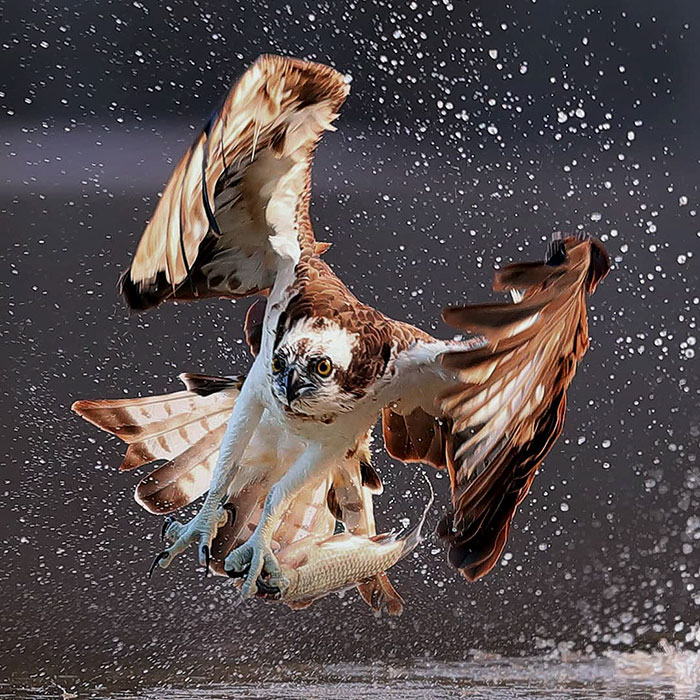
Photo
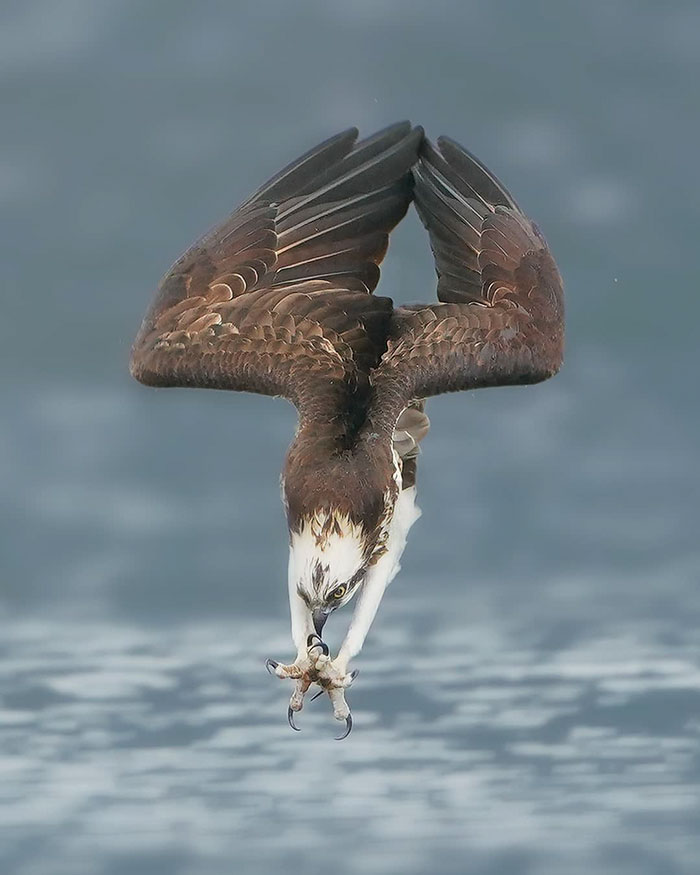
According to Chen, he has been “obsessed” with shooting photos of birds for a long while. His goal is to show “the most beautiful aspects” of flight. He points out that his work as a photographer is full of “toil, frustration, excitement,” but that all of this is worth it because it makes him feel like he achieved something.
Chen uses a technique called chronophotography to create frame-by-frame composite images
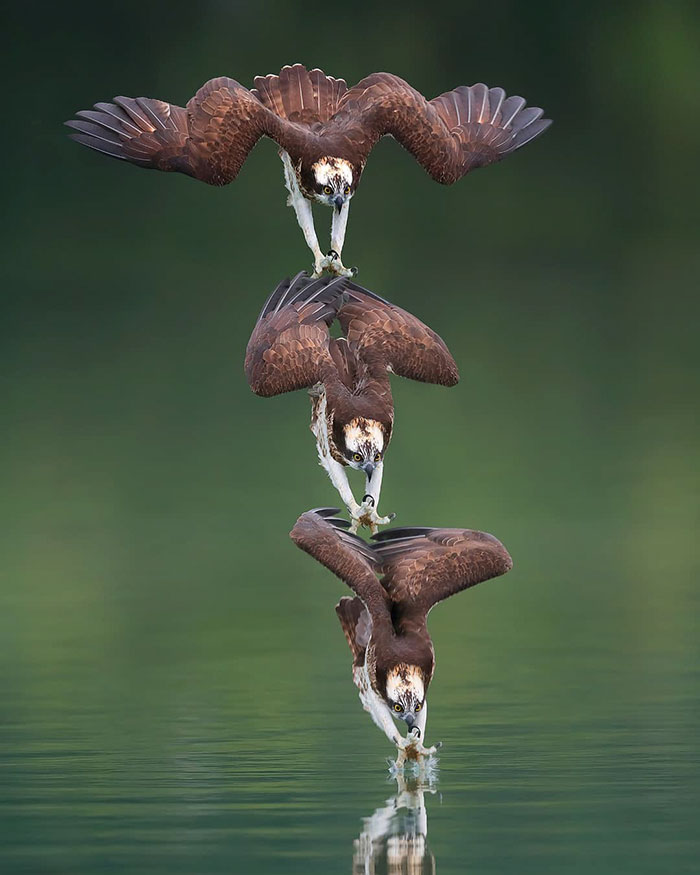
Photo
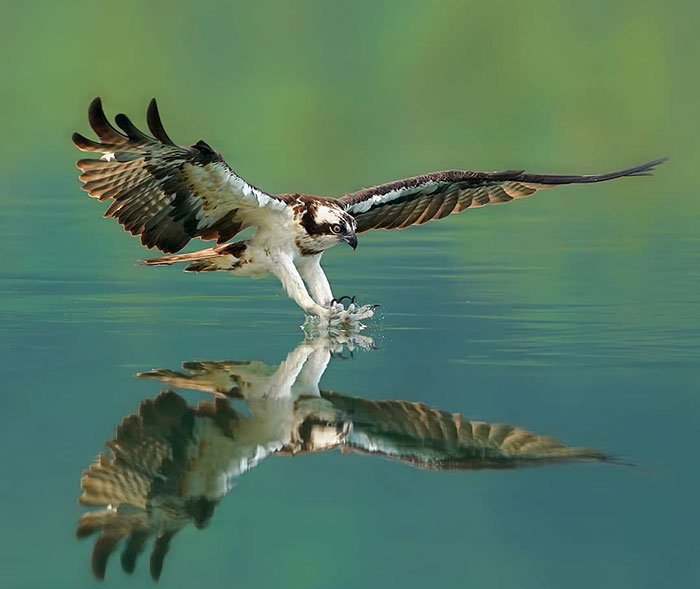
Over 209,000 people on Instagram follow Chen and wait for his newest pictures. It’s clear why: the shots are aesthetic, colorful, and present a new and exciting way of looking at birds.
After osprey catch fish, they orient them headfirst to minimize wind resistance
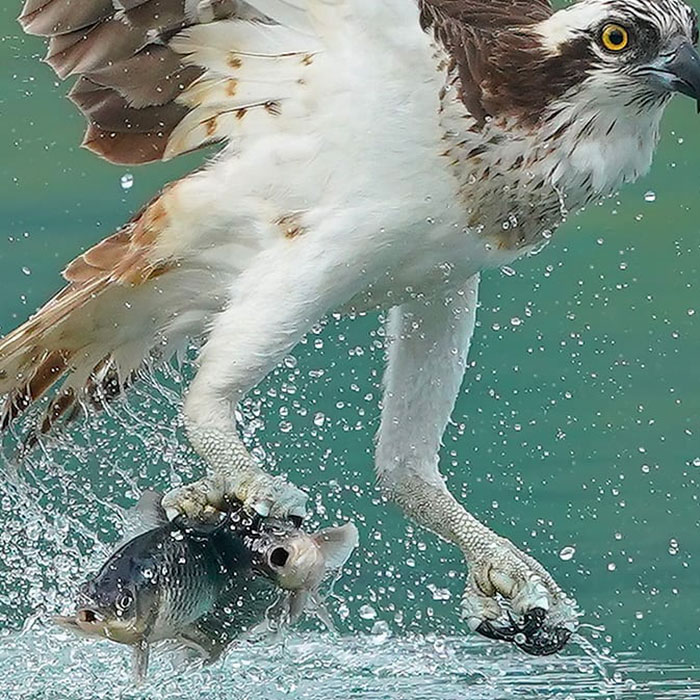
Photo
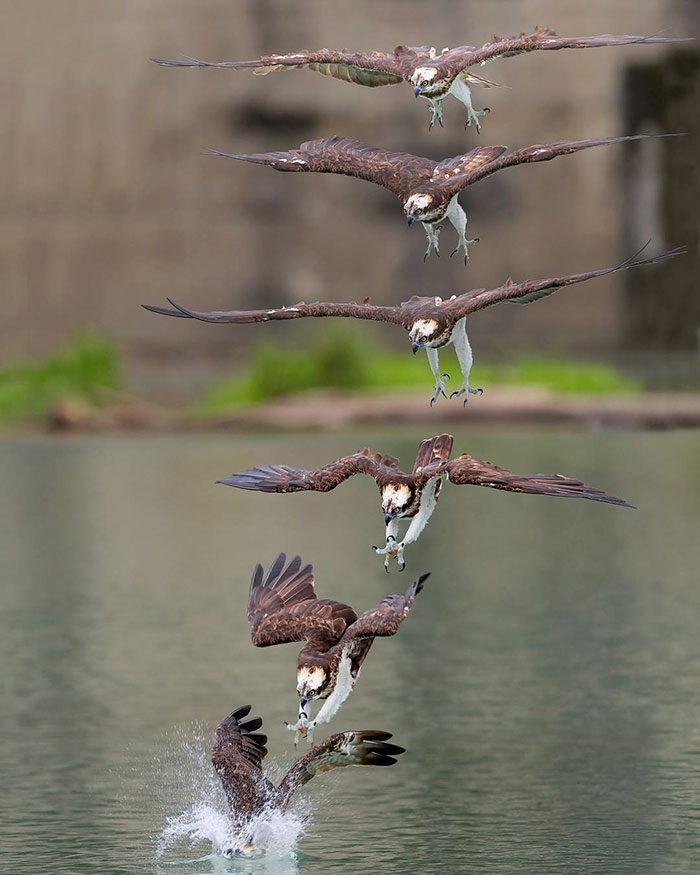
Ospreys live up to 30 years in the wild, according to National Geographic. They almost exclusively feast on fish-flesh. In fact, fish make up 99 percent of their diet. That’s some serious pescetarianism right there (minus the veggies).
Truly majestic
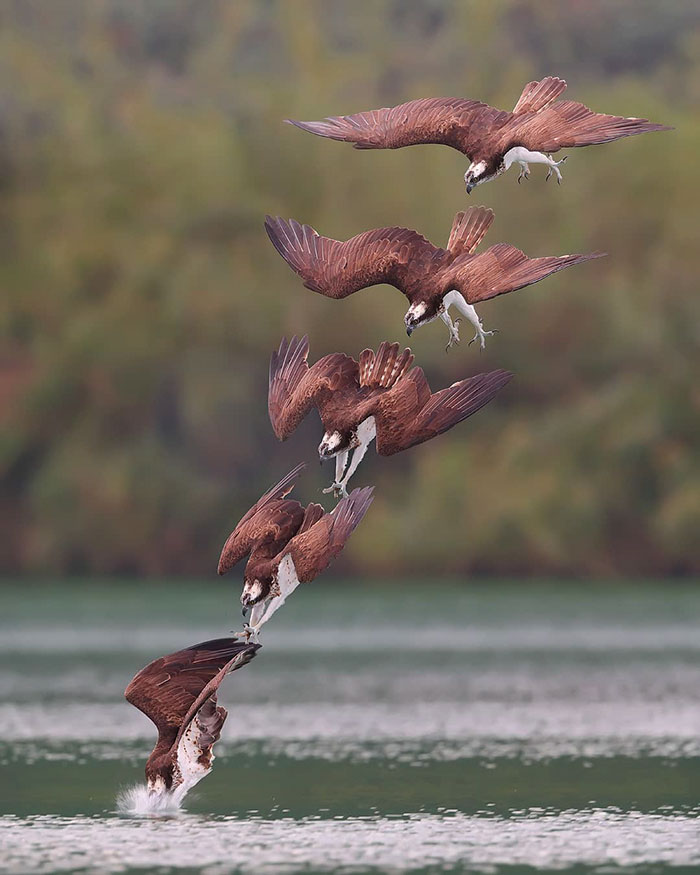
Photo
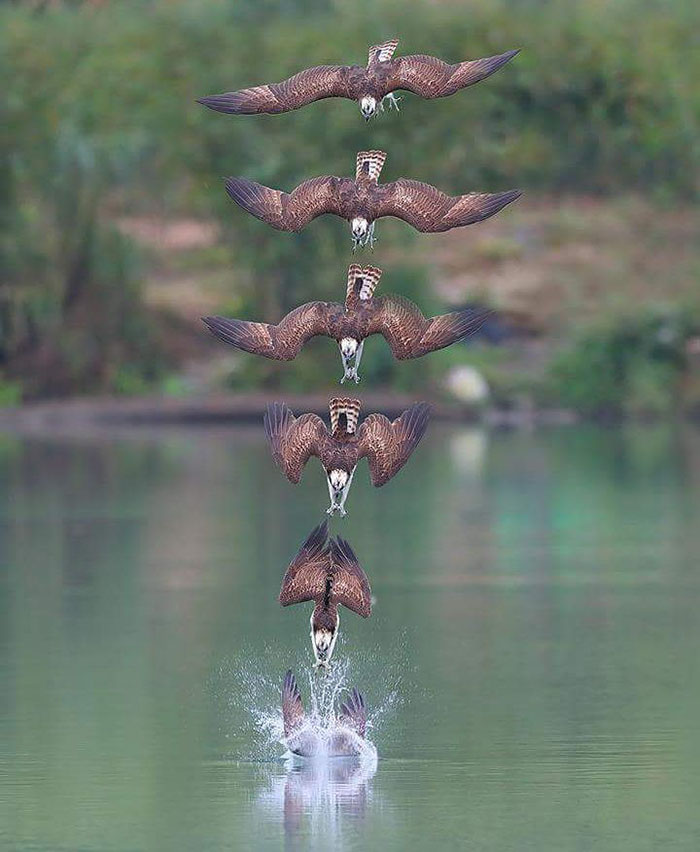
These birds mostly live around bodies of water because of their diets. Their bodies are perfect for hunting fish: they have curved claws and pads on their feet, which means their prey has little chance of escaping.
Osprey have curved claws and pads on their feet that are perfect for catching fish
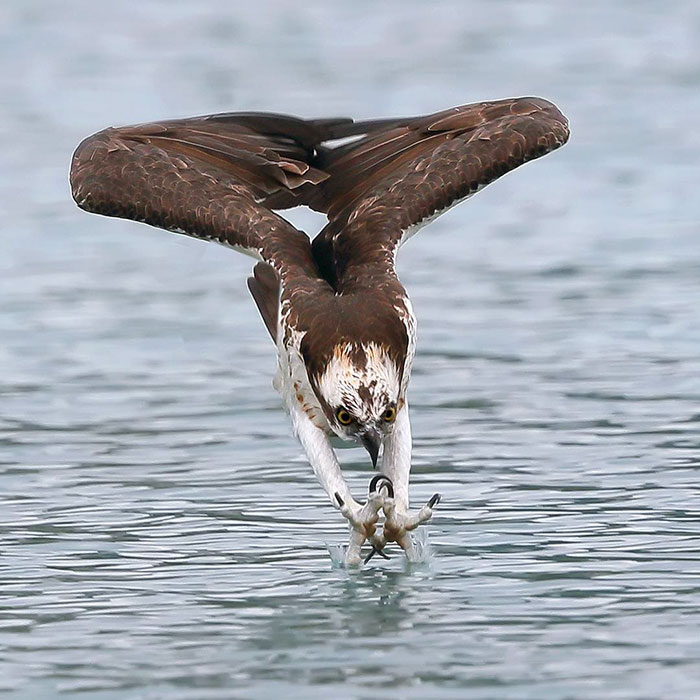
Ospreys dive to the water’s surface from 30 to 100 feet (9 to 30 meters) in the air. That’s incredible! What’s almost equally as cool is that when an osprey flies with a fish in its talons, it orients it headfirst to reduce wind resistance.
These birds’ diets consist of 99 percent fish
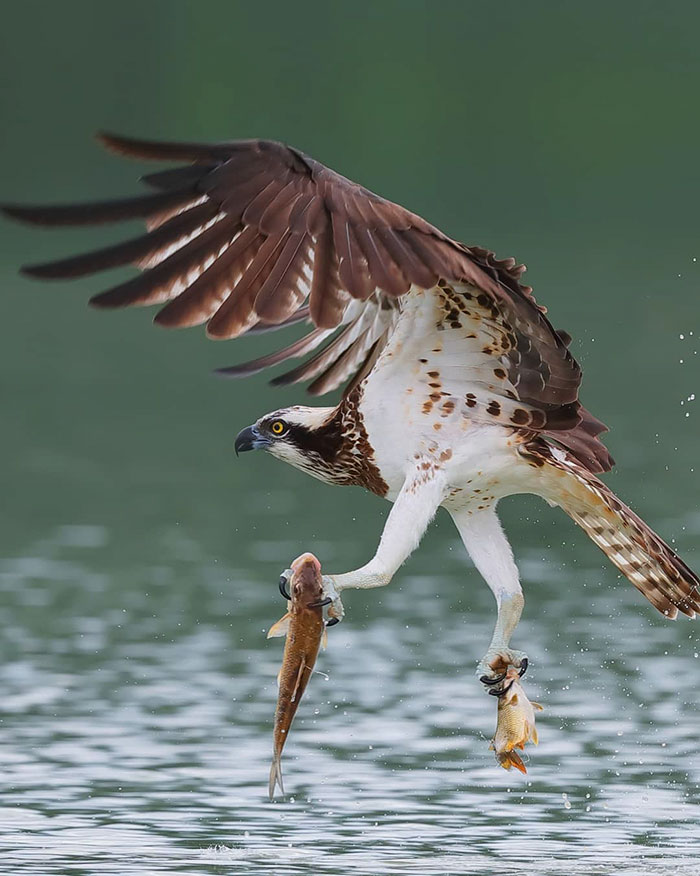
The osprey population in the US was in danger back in the 1950s when their natural habitats were polluted with chemicals. Fortunately, they overcame that challenge and increased their population in some locations.
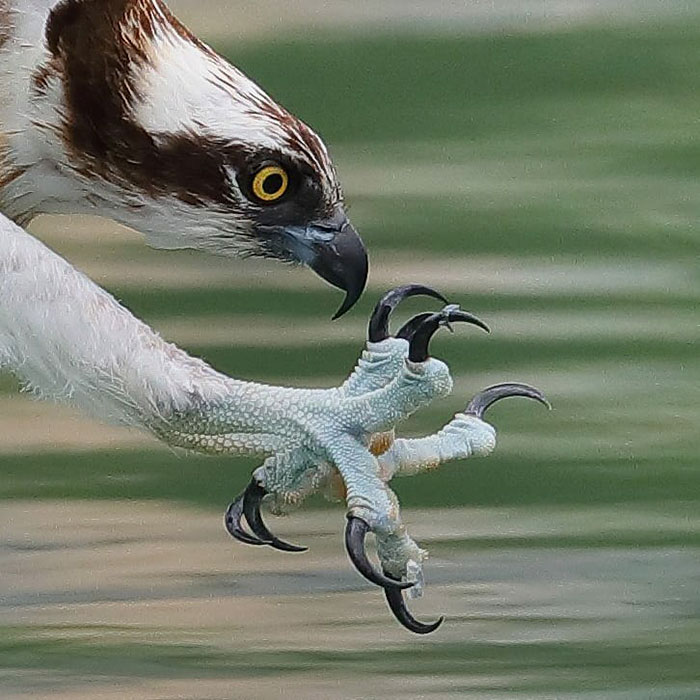

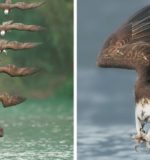

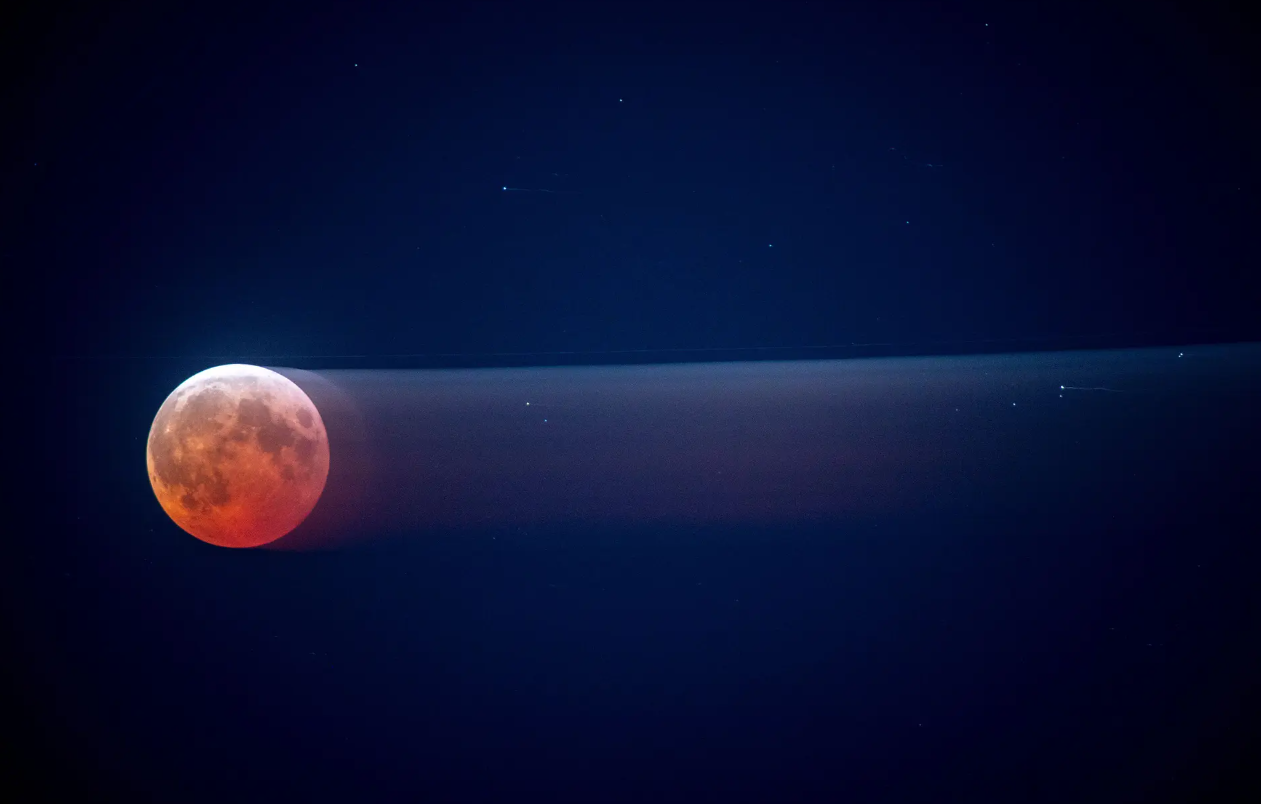




 Photographer Finds Locations Of 1960s Postcards To See How They Look Today, And The Difference Is Unbelievable
Photographer Finds Locations Of 1960s Postcards To See How They Look Today, And The Difference Is Unbelievable  Hij zet 3 IKEA kastjes tegen elkaar aan en maakt dit voor zijn vrouw…Wat een gaaf resultaat!!
Hij zet 3 IKEA kastjes tegen elkaar aan en maakt dit voor zijn vrouw…Wat een gaaf resultaat!!  Scientists Discover 512-Year-Old Shark, Which Would Be The Oldest Living Vertebrate On The Planet
Scientists Discover 512-Year-Old Shark, Which Would Be The Oldest Living Vertebrate On The Planet  Hus til salg er kun 22 kvadratmeter – men vent til du ser det indvendigt
Hus til salg er kun 22 kvadratmeter – men vent til du ser det indvendigt  Superknepet – så blir snuskiga ugnsformen som ny igen!
Superknepet – så blir snuskiga ugnsformen som ny igen!  Meteorite That Recently Fell in Somalia Turns Out to Contain Two Minerals Never Before Seen on Earth
Meteorite That Recently Fell in Somalia Turns Out to Contain Two Minerals Never Before Seen on Earth  Nearly Frozen Waves Captured On Camera By Nantucket Photographer
Nearly Frozen Waves Captured On Camera By Nantucket Photographer  It’s Official: Astronomers Have Discovered another Earth
It’s Official: Astronomers Have Discovered another Earth 
9ibf9c
tr05dx